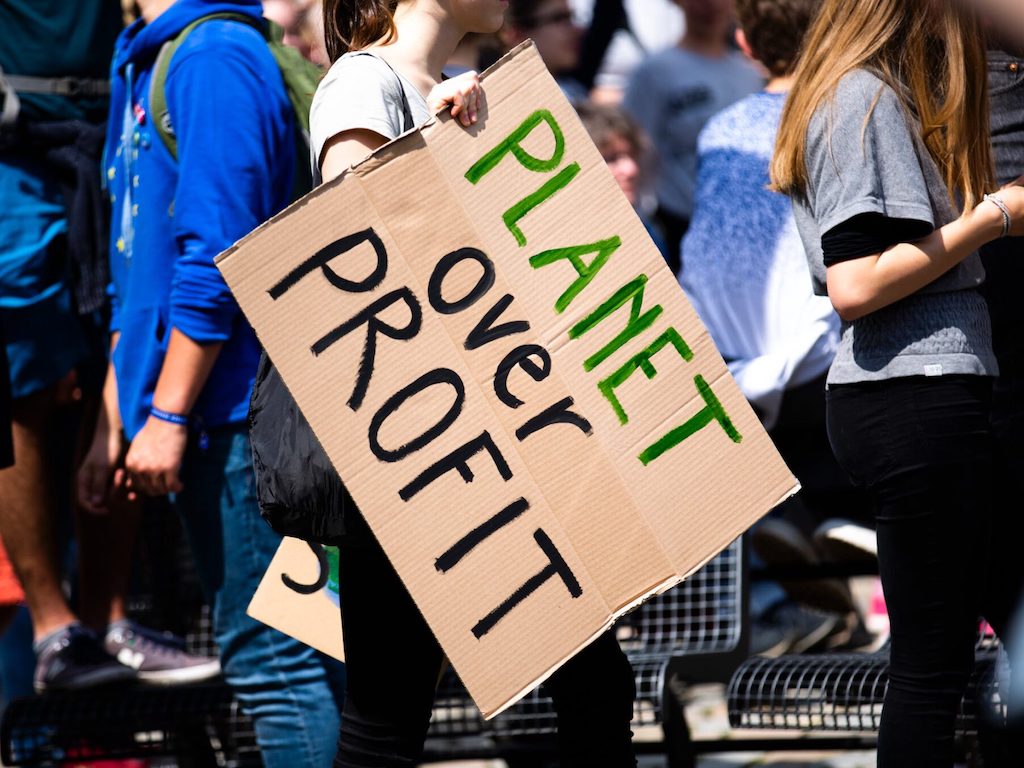4 Mins Read
More than 8 in 10 consumers now expect businesses to help solve global climate and social justice issues, a recent survey has found. Part of a report on the rise of sustainability, the poll also revealed that the majority of shoppers have held brands to a higher bar since the pandemic, and are actively rethinking the way they spend and live in order to reduce their footprint on the planet.
Consumers around the world are demanding far more action on the part of businesses and brands when it comes to tackling climate change and social inequality, research from New York consultancy Wunderman Thompson has revealed. More than 8 in 10 (86%) now want businesses to “play their part” to solve these big challenges, and 75% believe that companies’ responses to the pandemic has meant there is now a higher bar for brands to hold up to.
88% stated that sustainability should be considered a standard business practice, while 82% agreed that companies must put people and the planet before their profits.

The survey, conducted as part of the newly published “Regeneration Rising: Sustainability Futures” report, involved more than 3,000 respondents across China, the U.K. and U.S. and follow-up interviews with the public.
People are now also more committed to sustainability in their lifestyles than ever before, with a huge majority of participants – 94% – saying they are making at least some effort to live more sustainability. Of that figure, 46% say they are “doing all they can” to reduce their footprint on the planet.
58% say they are now always or often making a point to lower their consumption in the name of sustainability. Among some of the actions respondents most frequently partake in include using up leftovers, recycling at home, refusing plastic bags and avoiding disposable plastic items.
The pandemic was cited as one of the biggest drivers of the trend, pushing consumers to rethink their habits. One female interviewee based in the U.K. said: “I have had more time to reflect on my choices and learn how to make better ones. I have had time to learn to make and mend more things in my home so I’m not needing to replace things so much.”

Furthermore, consumers are making stronger connections between sustainability and other socioeconomic problems, with 80% believing that climate and environmental issues are “inextricably linked” with poverty, inequality and social justice.
Being regenerative – going further than recycling or carbon neutral and actively having a positive impact on the planet – is set to become one of the major values that consumers are looking for from brands, but shoppers want evidence to back its sustainability claims up, with greenwashing on the rise.
“I would definitely be impressed by a brand that fashioned itself as ‘regenerative.’ Just treading more lightly on the planet would allow the planet to utilise its own healing powers. However, I would be skeptical unless it was clearly articulating how it was being regenerative,” said a U.S.-based male participant.
Analysts at Wunderman Thompson note that if brands focus on regeneration, it isn’t just their reputation with customers that they will gain. “It’s also a route to great talent: 72% of Generation Z say they would not work for a company that does not have a good record on sustainability,” wrote the researchers.

Previous data has confirmed that the young generation is by far the most conscious when it comes to spending – they are at the forefront of driving demand in sustainable industries like alternative protein and resale fashion.
They are also committed to working for value-aligned companies, with sustainable brands like Patagonia now winning over huge swathes of Generation Z job-seekers, receiving an estimated 9,000 applications for every single open internship and full-time position it lists.
These findings further build on the strong existing evidence that “the appetite for change from ordinary people is strong,” as Wunderman Thompson analysts wrote in the latest report.
A recent Stifel survey conducted in the U.S. found that 83% of consumers now believe it is important for brands to act sustainably and 71% now care more about making eco-friendly purchases compared to one year ago.
Another poll, conducted in June 2020 amid the pandemic and in the wake of the Black Lives Matter movement, found that the majority of shoppers want brands to take a public stand on issues important to them, the top two concerns being the environment and social and racial equality.
Lead image courtesy of Unsplash.




